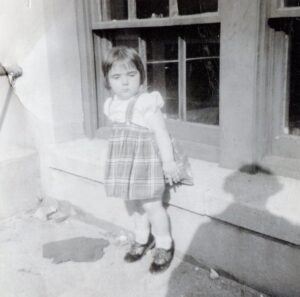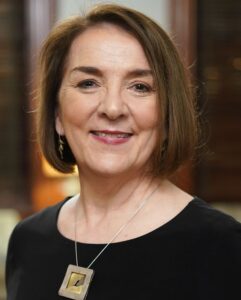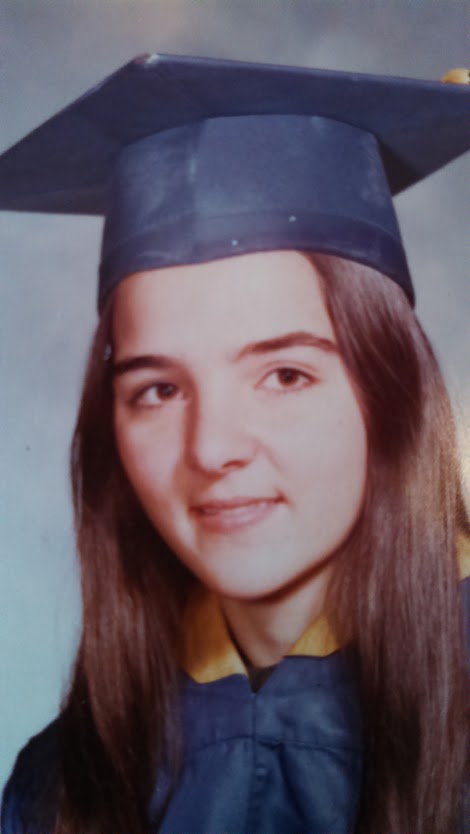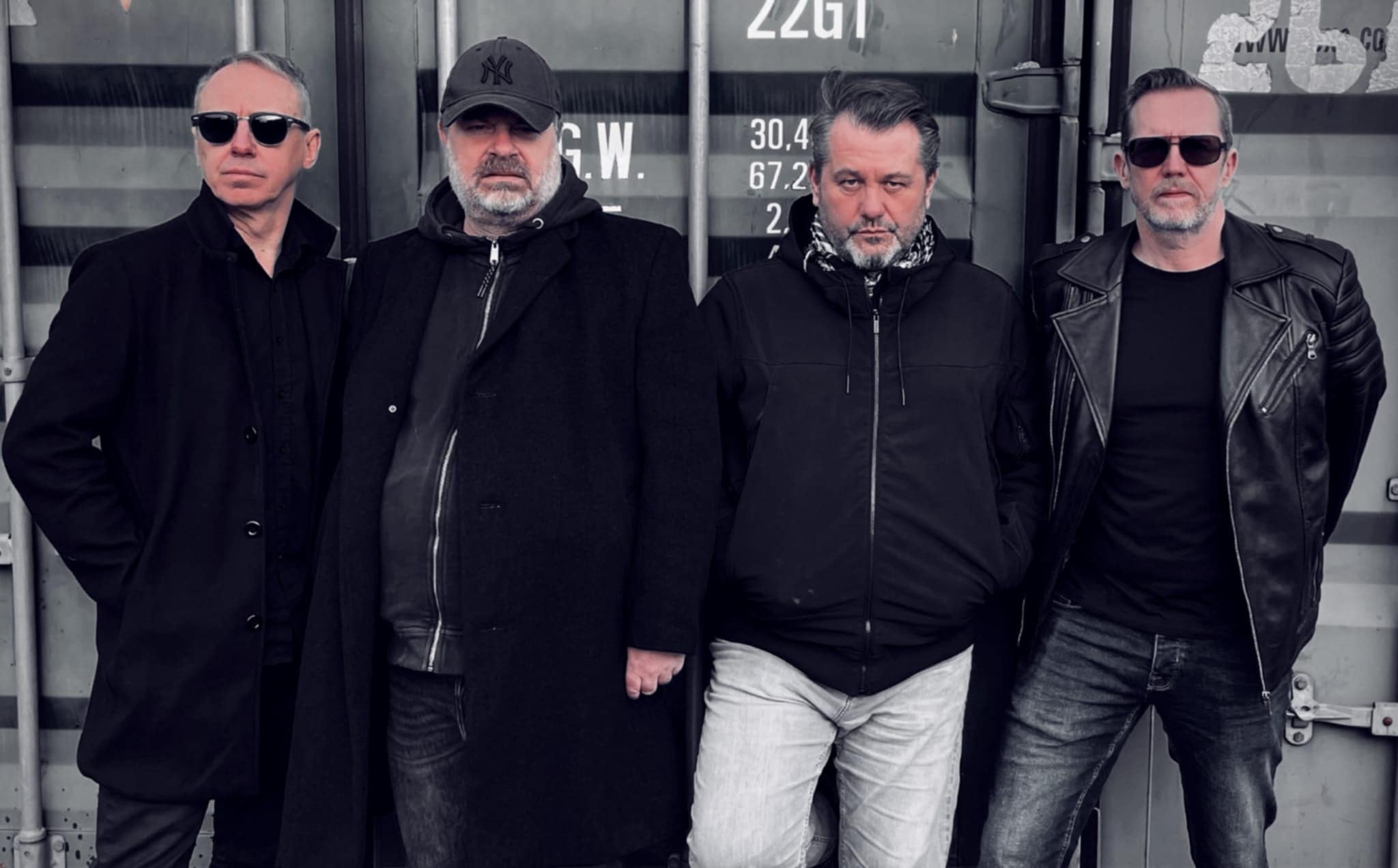Through a small square in the corner of my computer screen, I first saw Wendy Amengual Wark—a woman in her late sixties with straight brown hair cut in a neat, chin-length bob, parted gently to one side. Her fair complexion framed expressive features: arched brows, kind brown eyes, and subtle makeup. She looked composed, approachable. That day, she wasn’t the only one to share something deeply personal and painful, but her voice—clear, steady, and unexpectedly powerful—cut through the virtual space. With quiet authority and unflinching honesty, she revealed that she had been sexually abused as a child.
Wendy struck me immediately as someone who not only confronted her past but also claimed ownership of her story. “I grew up with no safety net. My mom married a man who was violent, and I learned early that nobody was coming to rescue me. Every day felt like survival,” she told me later in our interview. In that moment, I knew I had to tell her story.
We met in person a few weeks later. I traveled from Philadelphia to New York in early April 2025, where we had arranged to meet at Gaia, a Greek restaurant in Midtown Manhattan known for its Mediterranean flavors and housed in a historic 1903 building—a place with the same quiet elegance and depth of character that Wendy carries.
We had first crossed paths during a virtual workshop hosted by The Op-Ed Project, a global organization dedicated to accelerating the ideas and impact of underrepresented voices. On the Amtrak ride to New York, I scrolled through her LinkedIn profile and personal website. On paper, Wendy possessed all the accouterments of accomplishment: an undergraduate degree from CUNY, a master’s degree from Columbia, a consulting business that she built from scratch, and—as I would soon learn—a memoir on the cusp of publication. But behind the professional veneer was a woman who had spent her life walking through fire, one deliberate step at a time.
Seated at the back of Gaia, Wendy wore a black mock turtleneck under a black-and-white checkered blazer. It was 4:30 p.m. on a Thursday, and the dining room was mostly empty. She studied the menu with deep focus, though she later admitted she already knew it by heart. By the time dinner arrived, she was already halfway through telling me her story.
Chris Ebert, one of Wendy’s closest friends, met her about 30 years ago when they were both graduate students at Columbia University. He says Wendy’s stories rarely follow a straight line—more often they involve calamities, strange coincidences, or unexpected turns. “At the end, we find ourselves laughing together—even in situations where you’re ‘supposed’ to be serious,” he says. He jokes that he should keep a notebook just to track her stories, which she shares with an openness that makes people feel instantly at ease. But beneath the humor, he knows their friendship is rooted in something deeper—mutual care, admiration for her “impressive level of engagement and passion,” and, above all, her big heart.
And sure enough, as Wendy began to recount her twisted and often tragic upbringing, I, too, found myself laughing—though at times the laughter gave way to something closer to tears.
Before she was born, pain and poverty were constant on both sides of Wendy’s family. Her mother, born in Canada and raised in New York City, ran away from home at sixteen and married the father of a friend—a 42-year-old Puerto Rican man with five children from a previous marriage. Wendy, the eighth of their nine children, grew up in public housing on the Upper West Side of Manhattan. “We were the kids who slept with our coats on because it was so cold,” she said. When she was six, the family went on welfare—ironically, a blessing, because it meant there was more food on the table.
As the first Hispanic mixed family in the building, they quickly became targets for bullying from neighborhood kids. Wendy grew used to being “an outsider.” At school, she met children of immigrants—many from the Soviet Union—who were also bullied, and she became their defender. “I had four other brothers. I knew how to fight,” she said.
Despite the hardships at home, intellectual curiosity and academic achievement were non-negotiable. Books, museums, and the public library became her safe havens, along with visits to a loving aunt and uncle whose warmth offered a rare sense of stability—a sanctuary from the chaos.
This duality—her hunger for learning and ambition for something more, paired with the comfort of her uncle’s home—was always in tension with the darker secrets of her family.

Wendy Amengual Wark at 3 years old stands in front of the Methodist Church in Astoria, New York [credit: Wendy Amengual Wark]
According to Wendy, her father began sexually abusing her when she was around three years old. The memory that stands out most from that time is of the bedroom she shared with her sisters. “I can picture that room… he would come in at night,” she said.
It would take another ten years before Wendy and her siblings decided it was time to pack up, take their mother, and leave their father for good. “For many years she [my mother] was paralyzed by fear,” Wendy recalled. She described her mother as distant, with hugs and kisses few and far between.
By the time they left, Wendy had another brother, yet she felt even more alone emotionally. That’s when her suicidal thoughts began surfacing on and off—until her 18th birthday, when she decided to take a drastic turn. “I had a choice to make,” Wendy said, “and I decided to put an end to those thoughts instead of an end to my life.” From that moment, Wendy made a commitment to herself: to live and build a life despite her difficult upbringing.
It was during this time that Wendy reconnected with the young man who would eventually become her first husband, Gerard Skladal . The pair had met in high school before temporarily losing touch, but when they rekindled their relationship, it became deeply meaningful, playing a pivotal role in her healing. “We have to work on you loving yourself, because I love you, and I know you can’t believe that unless you learn to love yourself,” she recalled him saying.
With Gerard’s support—and through years of therapy and setbacks, including nearly dropping out of high school—Wendy slowly began to rebuild her life. Her breakthrough came at 29, while working for the City of New York in an administrative role. A guest speaker introduced her to The City College of New York (CCNY) program for working adults, and she soon enrolled in night classes. That marked another turning point—her transformation through education—and the beginning of a new chapter defined not by survival, but by growth and possibility.
While still working for the City of New York, a colleague encouraged her to join the Equal Employment Opportunity (EEO) office, a move that pushed her far beyond what she thought possible. There, she investigated discrimination and sexual harassment claims, developed prevention trainings, and pursued her BA in American Studies at CCNY, graduating in 1996.
Her passion caught the attention of NYU Professor Elizabeth Durbin, who attended one of the EEO office’s events. Impressed by Wendy’s expertise and lived experience, Durbin invited her to teach a graduate-level module on sexual harassment prevention. Meanwhile, Wendy juggled full-time work, full-time study, and caring for an ailing sister-in-law—while still making the Dean’s List, earning a Ford Fellowship, and securing funding to study at Cambridge University for six months.
“Cambridge for me is the symbol of all possibility. It showed me that anything is possible,” Wendy said. “Here was little Wendy who had this fantasy of going to Oxford—escaping her unhappy reality through books—and now I’m walking around this ancient university. The fantasy became real, not because it was a dream, but because I did the work. It’s evidence that I am valuable, that I matter, and that I can do incredible things.” She described the surreal moment of passing Stephen Hawking in his wheelchair on campus.
The pace was relentless. A few months after returning from Cambridge, Wendy collapsed and required major surgery for a tumor in her uterus that had grown into her bladder. Six months later, she was back on her feet and two years later became the Acting Executive Director of the Commission on the Status of Women (CSW)—advancing the rights and well-being of girls and women across New York City.
In 1995, as part of her role at the CSW, she helped organize the New York City delegation to the United Nations Fourth World Conference on Women in Beijing—a once-in-a-lifetime opportunity after more than a year of preparation and global advocacy. But just days into the trip, tragedy struck. During a taxi ride between sessions, her cab crashed, leaving her seriously injured and her husband, Gerard, whom she’d married in 1981, fatally wounded. “I’m dying,” he told her in the wreckage, and then he did. He was 42. She was 36.
The loss shattered Wendy’s world. Returning home, she began a long journey of physical and emotional recovery. She left her job, committed fully to school, and began writing the memoir she had always intended to write. She was accepted to Columbia University for graduate study in American History.
Wendy met her friend, Chris, at a meetup for graduate students in Columbia’s history department. “We hit it off quick because we both love being silly,” Chris says. They bonded over a shared love for Mediterranean food. Since Chris lived at the International House and had no kitchen, and Wendy’s apartment kitchen was rarely used, it wasn’t long before Chris began cooking his favorite Mediterranean dishes at her place. Over those meals, Wendy shared the many stories from her complicated life—so many, in fact, that Chris joked he needed a notebook to keep them straight.
Their friendship deepened over the years through inside jokes, their shared joy in being childlike together, and later, through Chris’s illness when he was diagnosed with cancer.
Today, Chris is apprehensive about Wendy’s professional future given the current political climate. “The people who do value the work she does to promote racial justice and reconciliation are under attack,” he says. “I find that horrifying.”

Wendy Amengual Wark today [credit: Wendy Amengual Wark]
The urgency of that mission feels sharper in today’s political climate, where Wendy worries that divisive rhetoric and eroding protections could silence survivors or make them feel unseen. “What I see as the future,” she said, “is being able to reach people and provide a lifeline of hope, to be out there creating a bridge of hope.”
Before we ended our conversation, Wendy returned to the subject of her mother.
At 96, Wendy’s mother was dying of old age. Despite a lifetime of distance and unresolved pain, Wendy wanted to be there for her. The truth was, they had never been close. As a teenager, Wendy had confronted her mother about the abuse she endured, only to be met with a cold refusal: “We are not talking about that.” From that moment on, their relationship remained strained, marked by silence and emotional distance.
“We didn’t talk much back then,” Wendy recalled. “And we didn’t talk much in the decades that followed—not just because of the abuse, but because she continued to be psychologically abusive.”
Eventually, Wendy drew a firm line. “I told her, ‘We can’t talk unless you can be kind.’ Sometimes we’d manage a short conversation, but then she’d start being mean again, and I’d have to say, ‘Okay, we can’t do this. Goodbye.’”
Still, as her mother’s life neared its end, Wendy tried to reconnect. Sitting at her hospital bedside, she took her hand and said softly: “I know you know. I don’t fully understand, but I forgive you. I’m just so sorry for what you’ve been through.”
This capacity for empathy, even after years of hurt, runs deep in Wendy’s life and work. It’s reflected in the title of her memoir, “Not Wednesday’s Child”—a nod to her lifelong effort to unravel family myths. For decades, her mother had told her she was born on a Wednesday because, as the nursery rhyme goes, “Wednesday’s child is full of woe.” But one day, a nephew sent her a link to look up her actual birthday. “I found out I’d been born on a Tuesday,” she says. “I was in shock.” My mother had told me that story my whole life.”
In time, Wendy learned to look beyond her own pain to see the damage her mother carried. “It took me years to understand that my mom was a broken person herself. She was a 16-year-old girl married to a 42-year-old man with a history of abuse. Once I saw her pain, I felt heartbroken for her—but it didn’t erase what I went through.” She came to see her mother as “emotionally disabled,” deeply scarred by her own childhood trauma and unable to protect herself, let alone her children.
“Does it free her of responsibility? No—the main responsibility is to protect your child, but she was not capable of that—and yet she still loved me.”


